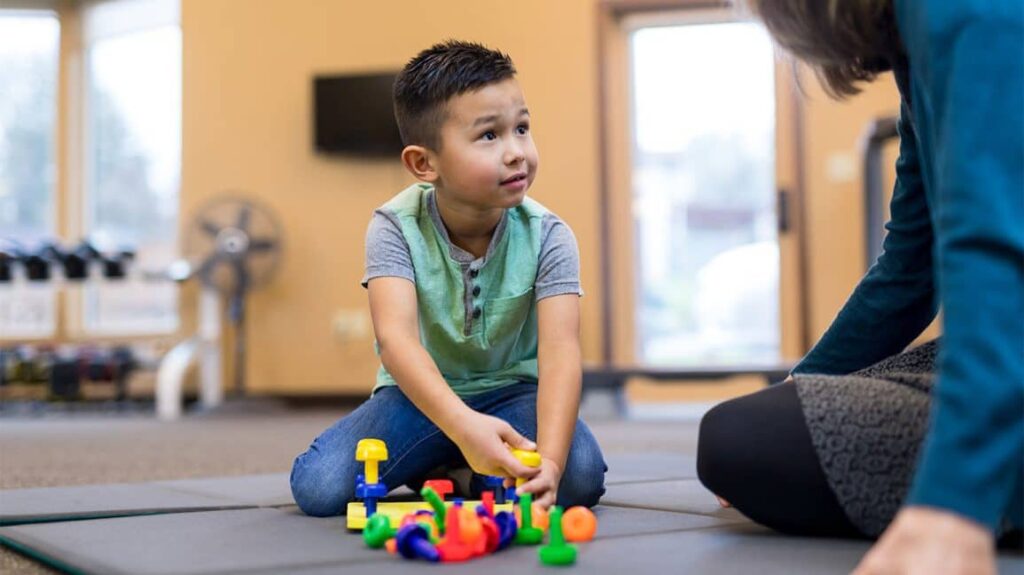[vc_row][vc_column][vc_column_text]
As a parent, you obviously want to do everything within your power to make sure your child is well taken care of. The tricky thing with children is that they don’t always have the ability to tell you exactly what is wrong or what they need. When they fall off their bike and break their arm, it’s easy for us to tell something is wrong. When kids are physically injured, we notice the signs easily, but mental health is a whole different ball game. The signs of mental health issues are often much more subtle than signs of physical injury. There is still a strong stigma around mental illness in the US. Many kids don’t get a chance to learn about mental health at a young age, so they don’t have the language to express what they’re going through. If you’re questioning if your child needs therapy or is experiencing mental health issues, there are some signs you can watch out for.
Many of us don’t even realize that kids can suffer from mental health disorders. We hear a lot about mental health in adulthood, and it’s assumed that most mental health disorders don’t start until adulthood. However, children can and do experience mental health issues like depression, anxiety, PTSD, phobias, OCD, and even schizophrenia. According to the CDC, 7.1% of children age 3-17 have diagnosed anxiety and 3.2% of children in the same age group have diagnosed depression. It’s extremely distressing to read the statistics about children and mental health. It’s hard to imagine our kids suffering without us knowing about it. It’s also frustrating to read about the prevalence of mental illness in children without being given information on how to actually help your child.
Mental illness doesn’t discriminate by age. It’s critical to give our children accurate information about mental health because you never know when they may need it themselves.
So, how do you know if your child needs therapy? Kids go through phases all the time, and it might be hard to tell if this is a short term issue or something more serious. In general, something is considered a mental health issue if it interferes with everyday functioning. When you think about what your child is experiencing, does it get in the way of their everyday activities? Does it affect their schoolwork or their social life? Those are strong clues that something is amiss. It can be helpful to pay attention to the frequency, severity, and age appropriateness of your child’s symptoms to help you decide if something is really wrong or if it’s just normal kid stuff.
Especially after the events of the last year, kids need support. It’s been hard enough to be an adult during the pandemic and all the changes that has brought. Our kids have been lonely, bored, scared, and more over the last year. Make sure to pay extra close attention to your child right now, because the weight of pandemic stress might really be hard on them.
If you’re wondering how to know if your child needs therapy, here are some of the signs:
- Acting out in risky ways, like running into the street
- Having a hard time regulating their emotions in a developmentally appropriate way
- They’ve experienced a traumatic event
- Bursts of anger and overreacting to situations
- Sudden changes in school performance
- Persistently feeling sad or hopeless
- Engaging in repetitive and damaging behaviors, like scratching their skin or pulling their hair
- Saying they wish they were dead or talking about suicide
- A preoccupation with death or morbid things
- Performing routines obsessively throughout the day (like washing hands or turning off lights)
- Trouble sitting still and/or concentrating
- Talking about hearing voices that aren’t there
- Excessive worry about the future
- Changes in sleep habits
- Changes in eating habits
- Withdrawing from social activities, especially ones they used to like
- Any sort of substance use
- A sudden increase in nightmares or sleep problems
- Expressing fear of someone controlling their mind or their actions
- Engaging in violent acts like playing with fire or harming living things
The idea that your child needs therapy might be upsetting or scary to you, but know that mental illness is very treatable with the proper support and interventions, like therapy. If you’re interested in learning more about how therapy can help your child, get in touch with our office today.
[/vc_column_text][/vc_column][/vc_row][vc_row][vc_column][/vc_column][/vc_row]

